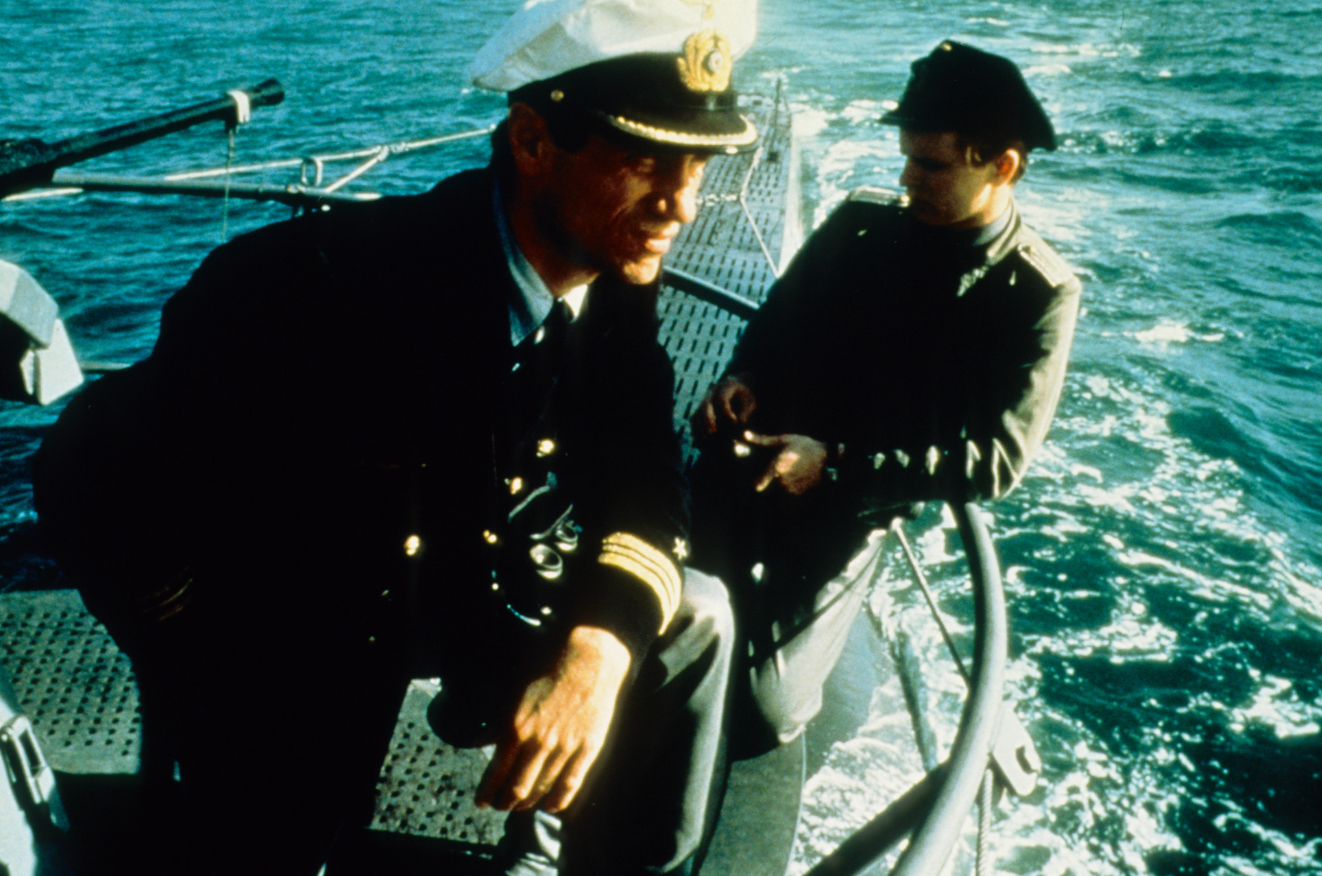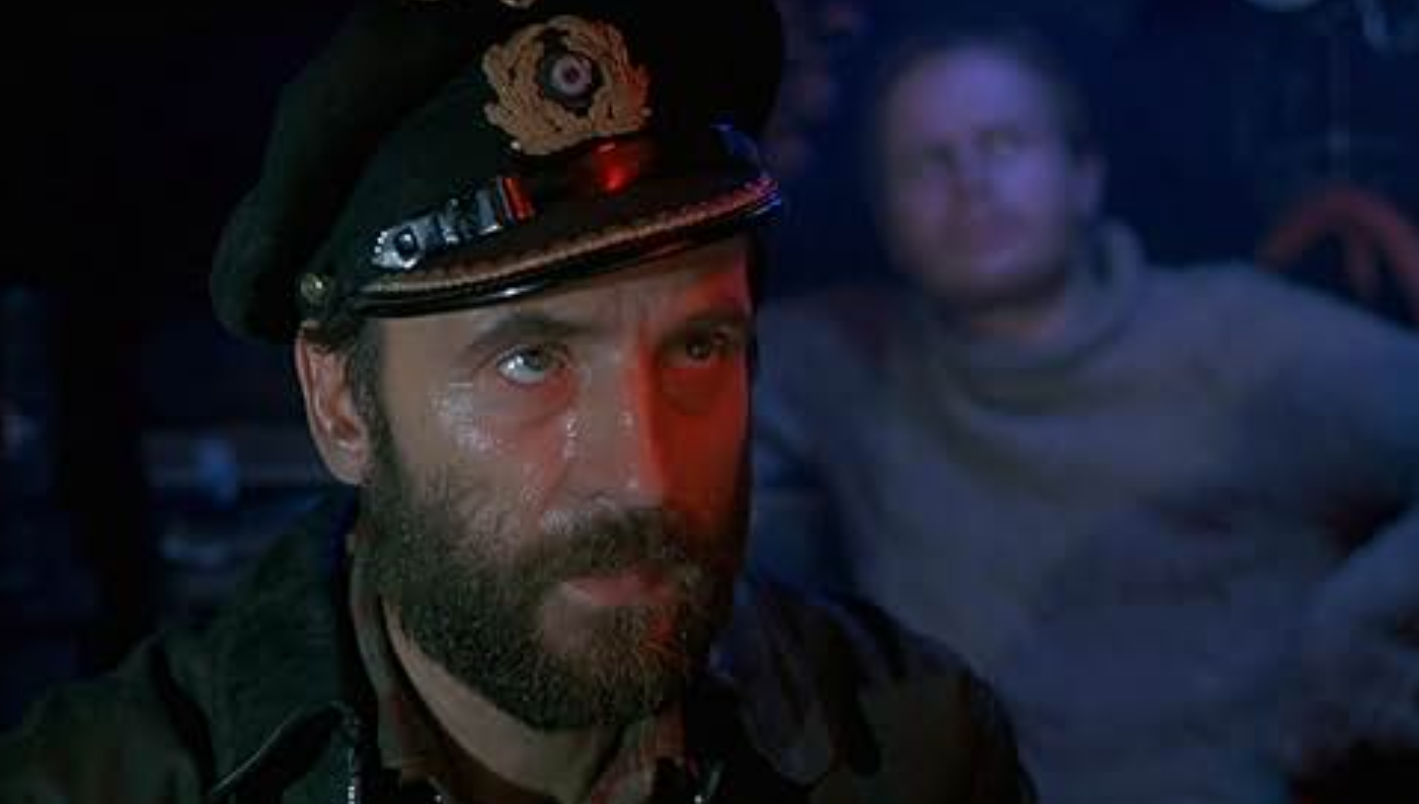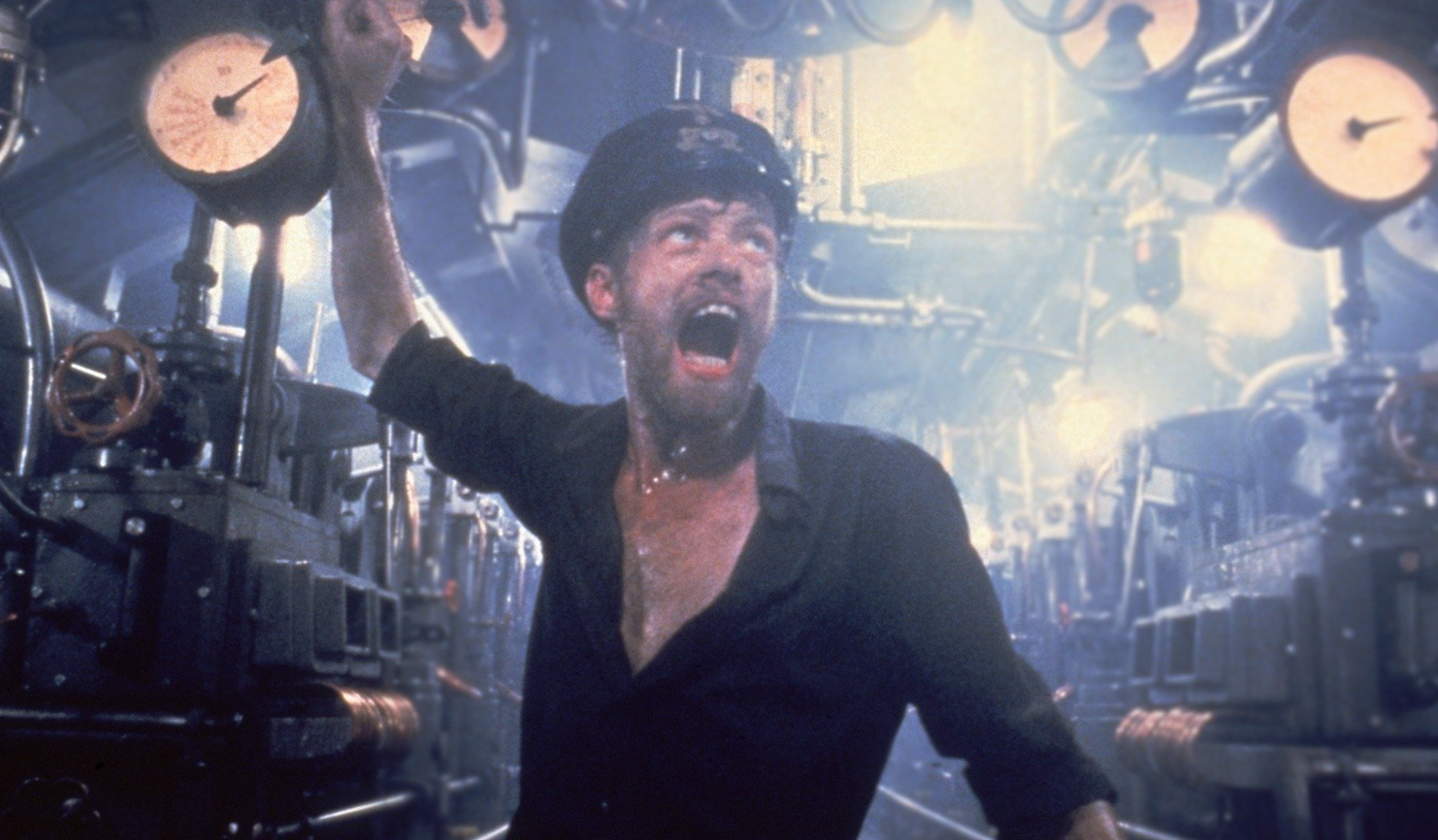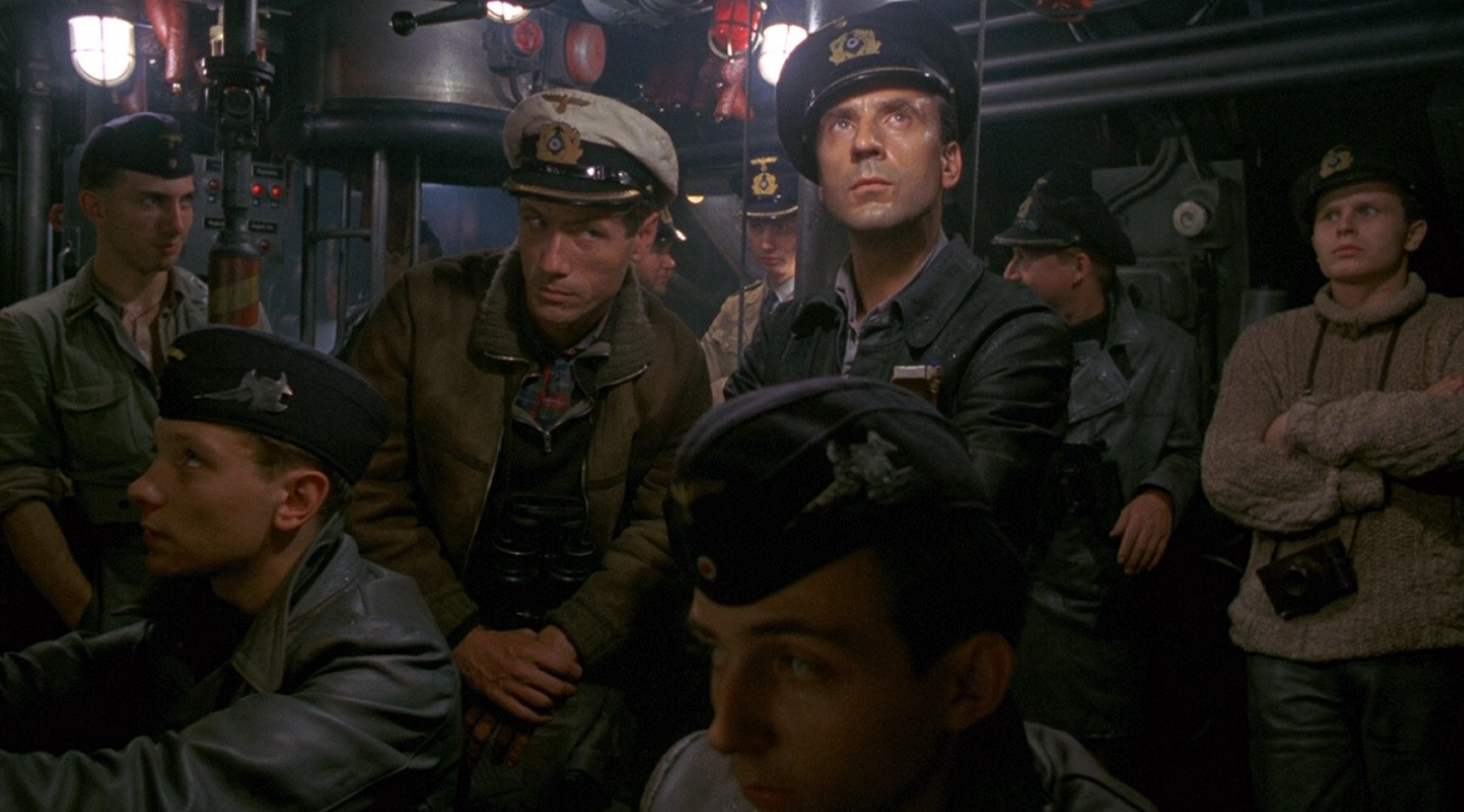🎬 Das Boot (1981) — A Gritty, Tense, and Claustrophobic Masterpiece of Submarine Warfare

- Director: Wolfgang Petersen
- Main Cast:
- Jürgen Prochnow as Capt.-Lt. Henrich Lehmann-Willenbrock (The Captain)
- Herbert Grönemeyer as Lt. Werner (The War Correspondent)
- Klaus Wennemann as Chief Engineer
- Release Date: September 17, 1981
- Studio: Bavaria Film
Plot Overview:
Das Boot (translated as The Boat) is a gripping war film that follows the crew of a German U-boat (U-96) during World War II, as they navigate the treacherous waters of the Atlantic Ocean on a mission to disrupt Allied shipping. The story is told primarily from the perspective of Lt. Werner, a war correspondent aboard the submarine, who witnesses the psychological and physical toll of life at sea. As the crew faces constant danger from enemy ships, mechanical failures, and the unrelenting pressure of underwater warfare, Das Boot explores the brutal reality of war and the toll it takes on those who fight it.

What to Expect:
- Unrelenting Tension:
- Das Boot is a masterclass in tension, immersing viewers in the claustrophobic, high-stress environment of a submarine. Every scene drips with suspense as the crew faces depth charges, enemy ships, and the unforgiving nature of the ocean. The film’s slow build-up and attention to detail allow viewers to feel the pressure mounting, making the moments of action even more intense.
- Realistic Depiction of Submarine Warfare:
- The film is widely regarded as one of the most realistic portrayals of life on a submarine during wartime. From the cramped quarters to the constant threat of death, Das Boot captures the exhausting and dangerous reality faced by U-boat crews. It’s a raw and unglamorous look at war, with none of the traditional heroics often found in other war films.
- Psychological Depth:
- Das Boot goes beyond being a war movie by delving deep into the psychological effects of prolonged isolation, fear, and hopelessness. As the mission progresses, the crew’s morale deteriorates, and the strain of living in such confined conditions takes its toll. The film explores themes of duty, survival, and the futility of war, making it a thought-provoking piece of cinema.
- Brilliant Performances:
- Jürgen Prochnow delivers a standout performance as the battle-hardened Captain, portraying him as a leader burdened by responsibility but also deeply empathetic to the plight of his crew. Herbert Grönemeyer’s Lt. Werner provides a fresh, outsider perspective, allowing the audience to see the transformation of a naive journalist into a hardened observer of war’s brutality.
- Stunning Cinematography:
- The cinematography by Jost Vacano is a triumph, using handheld cameras to create an almost documentary-like feel. The camera work captures the claustrophobic interior of the U-boat, the relentless waves of the Atlantic, and the devastating explosions during battle. The underwater sequences are particularly impressive, heightening the sense of danger lurking below.
- Historical Accuracy:
- Das Boot is based on Lothar-Günther Buchheim’s novel, which in turn is inspired by his real-life experiences aboard a U-boat. The film’s commitment to historical authenticity in terms of dialogue, tactics, and military technology adds a layer of realism that sets it apart from other war films.

Cinematic Techniques:
- Claustrophobic Atmosphere:
- One of the defining aspects of Das Boot is its ability to convey the intense claustrophobia of life aboard a submarine. The tight, narrow corridors and constant background noise of creaking metal, water pressure, and machinery create an oppressive, anxiety-inducing atmosphere that mirrors the mental state of the crew.
- Sound Design:
- The sound design is crucial in building tension, especially during scenes where the U-boat dives deep to avoid enemy ships. The creaking hull, the pinging of sonar, and the sound of depth charges exploding nearby all combine to create a nerve-wracking auditory experience that places viewers right in the middle of the action.
- Pacing:
- The pacing of Das Boot is deliberately slow at times, allowing the tension to build before releasing it in explosive moments of action. This ebb and flow reflect the reality of warfare, where long periods of waiting and anxiety are punctuated by bursts of chaotic violence.

Legacy and Impact:
- Critical Acclaim:
- Das Boot was met with widespread acclaim upon its release, both for its technical achievements and its unflinching portrayal of warfare. The film was nominated for six Academy Awards, including Best Director, Best Cinematography, and Best Sound, a testament to its craftsmanship and storytelling.
- War Film Landmark:
- Often considered one of the greatest war films ever made, Das Boot set a new standard for authenticity in the genre. Its focus on the human experience of war, rather than glorifying combat, makes it a powerful anti-war statement, comparable to classics like Apocalypse Now and Platoon.
- Influence on Submarine Films:
- The film’s success paved the way for other submarine thrillers like Crimson Tide (1995) and The Hunt for Red October (1990), both of which borrowed from Das Boot’s tense atmosphere and technical realism.
- Cultural Impact:
- Das Boot transcended its status as a German film to become an international sensation, particularly in the United States, where it was released in both a shortened version and a full-length director’s cut. Its success demonstrated that foreign-language films could compete on a global scale, influencing future productions.
Conclusion:
Das Boot is more than just a war film — it is a harrowing exploration of the human condition under extreme stress, a tense and realistic portrayal of submarine warfare, and a deeply moving anti-war statement. Wolfgang Petersen’s masterful direction, combined with stunning performances and technical brilliance, make this film a timeless classic. Whether you are a fan of war films, historical dramas, or intense psychological thrillers, Das Boot offers an unforgettable cinematic experience.











